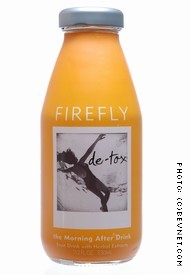 Another reminder spotted on the streets of Seattle, that the United States is the home of innovative products and services, and that nothing is too niche.
Another reminder spotted on the streets of Seattle, that the United States is the home of innovative products and services, and that nothing is too niche.
Dine with your Dog is an ‘additional’ service provided by the Three Dog Bakery.

entrepreneurship, innovation, business information and stuff
 Another reminder spotted on the streets of Seattle, that the United States is the home of innovative products and services, and that nothing is too niche.
Another reminder spotted on the streets of Seattle, that the United States is the home of innovative products and services, and that nothing is too niche.
Dine with your Dog is an ‘additional’ service provided by the Three Dog Bakery.
Often when talking to innovative designers and inventors in the Business & IP Centre, I discover they have a great fear of having their intellectual property stolen. Of course there are many examples where this has occurred. Our friend inventor Mandy Haberman had her idea for the Anywayup Cup copied, and had to win a legal battle to regain her rights. This experience has turned her into something of spokesperson on the topic.
However for many new products such as the Wattson mentioned in a previous blog post, the key is being first to market, and keeping ahead of the competition.
 The other winning approach is to produce a design classic first time out. A case in point is the Bic Crystal ballpoint pen. Designed by Marcel Bich, more than 100 billion Bic pens have been sold since 1950 – enough to draw a line to the moon and back more than 320,000 times, according to the Observer newspaper. The only variation on the original design was to create a hole in the cap to prevent choking.
The other winning approach is to produce a design classic first time out. A case in point is the Bic Crystal ballpoint pen. Designed by Marcel Bich, more than 100 billion Bic pens have been sold since 1950 – enough to draw a line to the moon and back more than 320,000 times, according to the Observer newspaper. The only variation on the original design was to create a hole in the cap to prevent choking.
The pen has even become part of the permanent collection of the Museum of Modern Art in New York, and has been reinventing in various guises.
BusinessZone.co.uk has joined forces with the Bristol Design Festival 2008 to organise The Pitch, an opportunity for up and coming entrepreneurs to sell their idea or existing company to a panel of specialists who have their finger on the pulse of business.The UK’s next generation of successful entrepreneurs are being invited to pitch their lightbulb moment to a panel of leading business experts and win a prize package worth over £1,000.
Having watched Douglas Campbell present his Project Hold Me (a unique and innovative egg-shaped incubator aimed at nurturing the bond between mothers and their newborn babies during their stay in hospital), I a would say that the ‘Dragons’ in this instance are a much more friendly and constructive bunch than seen on BBC television.
Have a look at the others and see what you need to do to develop your perfect pitch.
 Once again Springwise have come up with an innovative service for budding entrepreneurs.
Once again Springwise have come up with an innovative service for budding entrepreneurs.
cmypitch.com describes itself as “Dragons’ Den meets YouTube“.
Those in search of funding can pitch for investment by uploading a short video supported by a summary business plan, for a fee of £200 for a three-month listing.
Unfortunately due to UK financial regulations, viewers need to register and self certify as an investor before they can see any pitches. I can see this being a barrier to widespread take up of this service.
 I am aware that the producers of Dragon’s Den select some of their ‘victims’ purely for their entertainment factor, rather than as a serious business proposition.
I am aware that the producers of Dragon’s Den select some of their ‘victims’ purely for their entertainment factor, rather than as a serious business proposition.
The couple who ‘invented’ the idea of the Layline must surely fall into this category. I have to admit that the idea of buying a sheet with a tactile line woven through the middle to avoid arguments about who has taken the lion’s share of the bed does seem somewhat nutty.
However, despite being dismissed as “ridiculous” by the fearsome dragons it would appear that Ros Adams and John Foster-Smith had the last laugh. According to Real Business they were knowingly using the show as a way of publicising themselves and their serious business, FilmCircle – a DVD website.
But even their website for the Layline product shows how they have been able to use their opportunity to maximum benefit. For a start they have used the classic “As seen on TV” quote on a nice red banner in the top right-hand corner. Even more cheekily they have used used the following quotes out of context: “Television gold”, The Daily Telegraph – “This pitch..is a gem”, RealBusiness.co.uk.
I have to say I admire their chutzpah.
 Have just finished watching the first of the new series of BBC’s Dragon’s Den in the hope of catching Ed Wray one of our success stories. He mentioned his BarbeSkew product was going to be appearing in the series but wasn’t allowed to say whether he got backing from the Dragons.
Have just finished watching the first of the new series of BBC’s Dragon’s Den in the hope of catching Ed Wray one of our success stories. He mentioned his BarbeSkew product was going to be appearing in the series but wasn’t allowed to say whether he got backing from the Dragons.
In this evening’s episode I was surprised by Peter Jones investing £75,000 in rock group Hamfatter with an unproven track record of sales, in exchange for 30% of their future royalties. Note – their website was down this evening due to too many visitors.
Since the last series I have begun giving business advice sessions myself, and I have to say that I am not a fan of the way the program turns entrepreneurship into entertainment. In particular I find the flippant comments from the Dragons to the enterprising inventors and business people annoying.
However, despite these criticisms, the questions they ask are often valid, as are many of their observations.
But Peter Jones came out with the quote of the show when referring to a product with a small potential market. He said there was a niche in the market, but no market in the niche.
Sadly I have come across several business ideas that fall into this category.
As a regular commuter and walker through London I am used to having flyers and more recently newspapers thrust in my face. Even more annoying are the chuggers (charity muggers) who seemed to have resisted attempts to control their behaviour.
So I was somewhat surprised to have a banana proffered in my direction as I was entering St Paul’s Thameslink railway station on Wednesday morning. Admittedly there was an accompanying leaflet promoting a special offer at L A Fitness, but what caught my eye was the sticky label on the banana extolling me to enjoy the healthy snack on them.
Associating a free healthy snack with a similarly healthy product or service makes good sense but is all too rare an approach to ‘bribing’ customers.
 Last month I went to a great event at Westminster Reference Library to hear the story of Firefly Tonics from co-founder of the business Harry Briggs
Last month I went to a great event at Westminster Reference Library to hear the story of Firefly Tonics from co-founder of the business Harry Briggs
Harry and Marcus Waley-Cohen were friends at school and “We’d always thought one day we’d start a business – whenever we had A-level coursework to do, we found ourselves bouncing (mostly silly) business ideas around instead.”
After university they were both working for large consulting firms when they were given the opportunity to market at Japanese water that claimed to cure all ills.
“We didn’t think much of the water, but it did get us thinking – “what if we could make a drink that was effective, yet completely healthy and natural?” Surely nature could do a better job than those chemically-infused sugary energy drinks…”
They found two top UK ‘serious’ herbalists (by searching Amazon for authors) and persuaded them to help develop healthy herbal drinks.
From original idea to launch took just over a year due to delays with the bottle supplier and the partners biggest arguments were over the design of the product rather than the product itself. Five years later they have sold 9 million bottles.
Harry listed some lessons learnt, most of which will be relevant to others starting out on their first business venture.
1. Ask your friends – Harry and Marcus had a long list of possible names for the company, but when they circulated the list to their friends, Firefly came back as the clear winner.
2. Talk and listen to your customers – Firefly make an effort to personalise their dialog with customers and use bespoke emails.
3. Dare to be different – it enables you to stand out in a crowded market-place.
4. All publicity is good publicity (well, almost all).
5. Stand up for a cause – Firefly chose to support independent cafes (who were also more likely to stock their products), creating a virtuous circle.
6. Be authentic and candid – don’t hide your ‘sins’
7. Involve customers in the company – all the photos on the front of their bottles are sent in by the public.
8. Your product is your best marketing – Giving your product away costs a lot less than producing brochures and advertising.
9. Your first customers are the most important ones
10. Sometimes it is better to say no – Firefly turned said ‘no’ to both Asda and Boots
11. You can be global earlier than you might think – their business plan had an international component in year three, but due to intense demand they are now a few locations in nearly 40 countries.
“The company values:
Values… When you try and put them into words you start sounding like a Life Insurance company. But they’re important. So here goes…
1. To create delicious, healthy, stylish and innovative drinks that help people get the most out of life, naturally
2. To build a company that values creativity, honesty, courage and a sense of humour
3. To develop a brand that’s adventurous and authentic, standing up for what we believe in
4. To work in a challenging, fun and inclusive environment where nobody employed by us ever wakes up and thinks, “I don’t want to go to work today”
5. To leave the ostriches to their own devices, get our heads out of the sand and go and stand on top of a mountain with our friends… playing frisbee. (Don’t ask…)”
The June issue of Inventique, the newsletter of the Wessex Round Table of Inventors has an interesting article by Sir James Dyson, the renowned inventor of the Dual Cyclone bagless vacuum cleaner, amongst many others.
He quotes Henry Ford the pioneer of popular motoring, “If I’d asked customers what they wanted, they would have said faster horses.” Although familiar with his line, “Any customer can have a car painted any colour that he wants so long as it is black”, I hadn’t come across this one before.
What I like about it (although some might say that it was written with the benefit of hindsight) is the way it illustrates the limited thinking of most business people. In particular the approach that seeks customer requested minor improvements, instead of radical leaps. It is only those with a vision of the future who are able to make significant changes to the way we lead our lives.
 What is ironic about the Henry Ford quote above is that it was the Ford motor company of the UK who produced one of the blandest models in recent memory, in the shape of the MK1 Mondeo. The cautious styling of this car was a direct result of the negative press the revolutionary Sierra received when first launched in 1993. Consequently the Mondeo is often cited as the most clinicked car of all time. So many potential customers were consulted that the resulting model became the definition of middle of the road boring. The phrase ‘Mondeo Man’ was used to describe the epitome of middle England values.
What is ironic about the Henry Ford quote above is that it was the Ford motor company of the UK who produced one of the blandest models in recent memory, in the shape of the MK1 Mondeo. The cautious styling of this car was a direct result of the negative press the revolutionary Sierra received when first launched in 1993. Consequently the Mondeo is often cited as the most clinicked car of all time. So many potential customers were consulted that the resulting model became the definition of middle of the road boring. The phrase ‘Mondeo Man’ was used to describe the epitome of middle England values.
I am glad to report that Ford learnt from this mistake and have since produced several out of the ordinary models such as the Ka, Focus and even the replacement Mondeo.
An often neglected form of marketing for business is the press and PR.
In order to help with this tricky topic for newcomers the Business & IP Centre has joined forces with GMT events to provide a series of Get Noticed events.
The right mention in the right publication can have a massive impact on orders for companies of all sizes. It can attract new business partners and can even help a growing business secure funding.
The first event was held on May 22nd, attracting a full house of delegates who heard some inspirational insights into the news media and the world of PR. Delegates heard from Fleet Street journalist and chairman of Europe’s largest media training company, Keith Elliott, from Tracey Hobbs, editor of the BBC2’s Working Lunch, and Richard Tyler, enterprise editor at The Daily Telegraph.
Then the PR speakers, including Francis Ingham, (Public Relations Consultants Association),
Crispin Manners, (Kaizo), Susanna Simpson, (Limelight PR) and Michael Hayman, (The Communication Group) talked about how PR agencies operate, about word-of-mouth marketing, and about why you are your company’s biggest asset.
The next event is on July 10th an includes Phil Halliday from the Financial Times on what makes a news story for one of the world’s most trusted business newspapers.
David Lester the founder of Crimson Business will share his expertise on raising a company’s profile via business magazines.
Sally O’Sullivan, former editor-in-chief at IPC Magazines will look at how consumer and customer magazines operate and how you and your business can feature.
Paula Gardner runs Do Your Own PR, a business that teaches companies of all sizes how to use PR to create interest, keep up with and surpass the competition and generally move up to the next level.
Francis Ingham, director general of the Public Relations Consultants Association, will explain how agencies operate, how to choose the most appropriate one for you – and tell you what PR firms can and cannot do for your business.
Adrienne Routledge, founder of Sapphire PR, a specialist business-to-business public relations agency, will look at how to get the most out of a PR agency.
Kaizo CEO Crispin Manners will cover word-of-mouth marketing.
Booking details from http://www.gmtevents.co.uk/booknow.htm.